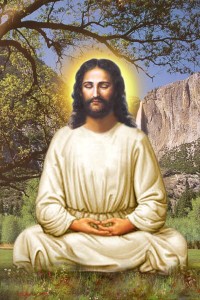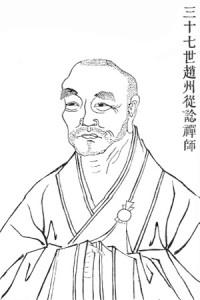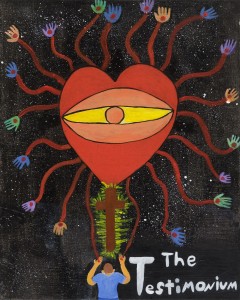I have been practicing Buddhist meditation nearly every day, usually in the Zen style, for the past five years. I have also attended 10 week long silent meditation retreats and undergone 9 months of residential training at a Zen monastery. Yet what surprises many people I talk to is that I do not identify myself a Buddhist, for I feel that all religions are merely paths to God and I do not wish to label myself with one exclusively. I also sometimes take a more personal approach to the Divine that is usually not present in Buddhist circles, although I ultimately understand that God/Buddha is fundamentally a direct experience and is actually my own True Nature.
I do, however, consider myself a serious practioner of Zen Buddhist meditation, and I have found that this practice has benefited me immensely. In this brief post I’ll explore a few reasons why I think Zen meditation can be beneficial for both the religious and the non-religious alike.
Natural stress reduction
The most common introductory Zen practice is simply concentrating on your natural breath, a practice that requires no faith and that anyone can easily experiment with. And it is now virtually a scientific consensus that this type of mindfulness meditation is linked with actual stress reduction. And stress in our modern world is something that unfortunately is nearly universal. In America we have so many options, the world is so freakishly fast paced and interconnected, and information speeds through our brains at a level that probably far exceeds all past generations.
This fast paced world seems to stress people out on a mass scale, and meditation can be a natural medicine for this stress. When I meditate I find that my brain literally relaxes in a physical way. Especially on a busy day, meditation tangibly reduces my stress in a way that I can actually feel. Most people realize they are stressed, yet don’t see the obvious truth that stress is the result of having little control over their own thoughts. We all understand that our bodies need to rest, and that if we exercise them constantly they will get worn down. Do we not see that the muscle of the mind will make us stressed and depleted if we don’t intentionally still our thoughts from time to time?
Meditation, in this sense, is a non-sectarian and completely natural medicine for stress and a tool to quiet the restless thinking mind. Its easy to make meditation into something “otherworldly” and forget that Zen meditation is, first and foremost, the physical practice of concentrating the mind on the present moment as it already is. Is your breath “Buddhist” or “Jewish” or “Muslim?” Its high time we begin viewing mindfulness meditation as a universal practice that all can benefit from and not the hoarded treasure of a niche spiritual community.
I don’t practice meditation because some ancient book told me to or because some guy with a backwards collar said I should. Rather, I practice meditation largely because I have found again and again through my own experience that it reduces my stress and makes me a more peaceful person. When I practice meditation in the morning for 20-30 minutes, I find that I can start the day from a place of calm and relaxation. And when I practice meditation after a long day of business I find it naturally rejuvenates my energy level. So even if I did not believe in the potential of enlightenment and understand the more spiritual reasons for meditation I would still meditate for its practical physical and psychological benefits.
Meditation as a tool to experience our own God-Nature
From a more spiritual perspective, I believe that we are fundamentally Spirit/God/Buddha, or whatever word you want to call the Divine . Yet while this is the case it is a mysterious truth that the majority of people have not actually experienced this. We may intellectually understand we are the deathless and changeless Buddha Mind, but if we are honest we will see that we have a deeply rooted habit of falsely identifying with our limited body, feelings, and thinking mind much of the time.
The other side of meditation is inquiry into the “Great matter of birth and death,” (A Zen saying referring to the quest for enlightenment) and concentration is not a goal in itself but merely a means to that end. By calming our thinking mind through meditation we set the stage to investigate our own nature. And just as we cannot see our reflection in a boiling pot of water, so we cannot see the truth of our own original enlightenment if our mind is distracted by thoughts and clouded by desire. In meditation we still our mind, and then from this place of calm begin to ask the question, “What is experiencing this?” “What is aware?” “Who am I really?” By persistently investigating these questions in the context of deep concentration and mindfulness, I believe we all have the capacity to awaken to the truth that our own awareness is God Itself. The goal of the spiritual path is this direct experience, one that many prophets and sages throughout time have testified to in a variety of both literal and symbolic ways.
So meditation is not merely a tool to calm the thinking mind, although this is an obvious and wonderful benefit of the practice. In my view, Zen meditation is fundamentally a technology that, if pursued singlemindedly and wholeheartedly, can lead to the direct realization of what is called “God” or “Buddha Nature.” In this experience we are set free, for we realize that everything – the good and the bad, the pleasant and the painful, the ups and the downs, our body, humanity, and even the whole universe – is merely the dream of a nameless Dreamer who is perfect, deathless, and changeless. And it is my deepest conviction that anyone, through the regular practice of meditation and the grace of God, can realize this deep truth in this very body and enjoy forevermore the bliss that all people are really seeking and that cannot be found in any impermanent thing.
Meditation as an expression of our God-Nature
The great paradox of Zen is that we are already the deathless Buddha in this moment, but that, mysteriously, great efforts in meditation are required to actually experience this truth. Yet we should never think that in meditation we are gaining anything. Enlightenment is merely realizing what has always been true, seeing that God is what is already seeing with your eyes and hearing with your ears in this moment. This very moment is God manifesting Itself to Itself, a blessed perfection based on Its own miraculous and rationally inexplicable existence. A great historical Zen teacher named Ehei Dogen wrote that our practice, or zazen (seated meditation), is itself enlightenment. When we sit down to practice meditation, we are not trying to get enlightenment. Rather, in meditation we are naturally expressing our own enlightened nature. Because Dogen perceived this inexpressible and wonderful truth he called zazen the “dharma gate of ease and joy.” From this perspective meditation is not merely stress reduction tool or even a tool to experience enlightenment-it is rather a joyous celebration and a serenely natural manifestation of the Enlightenment Mind we have never one been separate from!
For a deeper explanation of how I view meditation, God, and the spiritual path, check out my book in the book tab of this website. I have also suggest in the appendix of this book several great books on how to begin a meditation practice in the Zen style. If you are interested in meditation I recommend starting a daily meditation practice for a period of time you think you can stick to (20 minutes per day is a good starting number) and consider attending extended meditation retreats.
May you and all beings awaken and realize that your own awareness in this very moment is God/Buddha/Tao/Allah/Krishna/Christ Itself. With love,
Jeffrey



